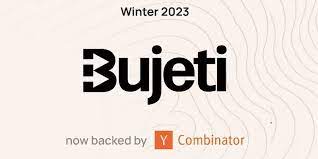The Nigerian fintech startup Bujeti has secured $2 million to aid financial administration in Africa.
According to reports, Y Combinator (YC) led the $2 million seed investment round in which Dropbox co-founder Arash Ferdowsi, Alan Rutledge, Tristan Walker of Heirloom VC, Abdul ‘Tomiwa’ Hassan, CEO of Mono, and other investors.
The goal of Bujeti, which was founded in 2021 by Samy Chiba, the COO, and Cossi Achille Arouko, the CEO, who led efforts at Paystack in the past, was to make financial administration easier for African enterprises. As a result, it serves as a one-stop shop that integrates every element required for a company to run its operations and finances smoothly.
Bujeti intends to grow faster, gain market share, and offer more products with this funding. According to the fintech, it would concentrate on creating new solutions suited for business requirements and launching credit lines for SMBs.
Bujeti’s relevance stems from its fundamental aim of providing the industry with unified solutions that allow for the seamless management of finances and operations. With features like; the platform offers interactive tools that let businesses increase income, regulate spending, and keep an eye on their finances.
Cash management, expenditure workflows, and payments make up the expense management package.
Suite for revenue optimisation: workflows and collections for invoices.
Accounting, compliance, analytics, and reporting make up the financial management suite.
Read also: QorePay to launch payments landscape with fintech solutions in Nigeria
What Bujeti offers
Like Teams or Slack, Achille, the founder and CEO of Bujeti, underlined the company’s dedication to teamwork and its goal of being the go-to solution for the whole corporate ecosystem.
He said: “Our differentiation lies in providing unparalleled control and granularity in financial operations, allowing businesses to digitize their complex payment and finance processes effortlessly. Bujeti stands as a digital ally, empowering workplaces and fostering trust among teams.”
“In the last eight weeks, we’ve onboarded close to a thousand businesses of all sizes, including SMBs and well-known startups, reflecting the trust and recognition of our platform’s efficacy,” Achille added.
“Our imminent goal is to reach ₦200 million in transaction processing, illustrating the growing demand for a comprehensive, integrated solution like Bujeti.”
Abdul Tomiwa Hassan, CEO of Mono remarked: “Bujeti’s innovative platform and the leadership of Cossi Achille Arouko position the company as a game-changer in the industry. Investing in Achille and Bujeti was an obvious choice; they address a significantly fragmented market with capable founders who excel in technical and business aspects. We believe in their potential to transform how businesses handle their finances, and we’re excited to be a part of their journey.”
Why Bujeti was created
Achille Cossi Arouko first established Bujeti in December 2021 as a personal finance tool to facilitate the planning, arranging, and monitoring of money transfers made by African immigrants to their families. Achille discovered while building the software that the diaspora was not the only group affected by issues with tracking, managing, and budgeting.
In actuality, most African firms struggle with expense management because they lack the ability to precisely monitor and trace how their money is spent.
The team made the decision to address these cost management challenges after working on the development of multiple AI and fintech firms and significantly influencing the expansion of the Nigerian behemoth Paystack.
“At the heart of Bujeti is the desire to bring transparency to financial transactions, to promote accountability and enable control,” says Achille.
“We wanted the Black Tax to be less of a burden on the diaspora, and then realized that we would have even more impact by offering this solution directly to African businesses. We decided to pivot to a full-fledged B2B budgeting and expense management for the African market.”
















